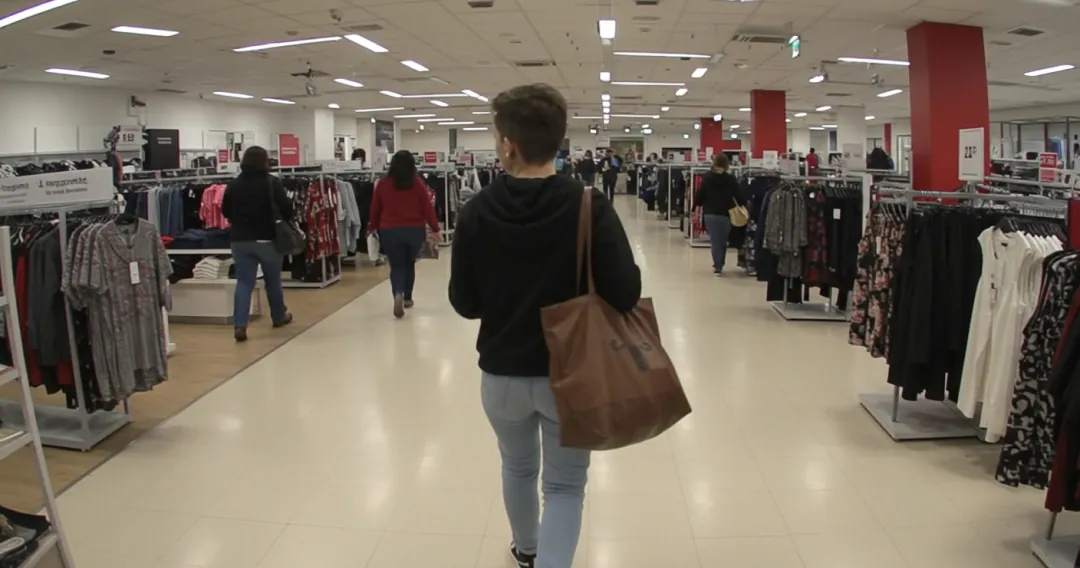Key Takeaways:
-
- “Bag checks” are a loss prevention strategy with potential benefits and risks.
- Clear, consistent policies and employee training are essential for effective implementation.
- Legal considerations and employee relations should be carefully addressed.
- Technology and data analysis can optimize the effectiveness of bag checks.
Why Consider Bag Checks?
Retailers may consider bag checks for several reasons:
-
- Deterring Employee Theft: The knowledge that bags may be checked can discourage employees from stealing.
- Recovering Stolen Merchandise: Bag checks can sometimes uncover stolen items that would otherwise go undetected.
- Protecting Company Assets: By preventing theft, bag checks can help protect a retailer’s bottom line.
- Maintaining a Culture of Honesty: Implementing bag checks can send a message that honesty and integrity are valued.
Developing a Clear and Consistent Policy
If a retailer chooses to implement bag checks, it is crucial to develop a clear and consistent policy. This policy should:
-
- Be in Writing: A written policy ensures that all employees are aware of the rules and procedures.
- Be Consistently Applied: The policy should be applied fairly and consistently to all employees, regardless of their position or department.
- Specify the Scope of the Check: The policy should clearly define what types of bags and belongings will be checked.
- Outline the Procedure: The policy should describe the process for conducting bag checks, including who will conduct the checks and where they will take place.
- Address Employee Rights: The policy should acknowledge employees’ rights and explain how those rights will be protected during the bag check process.
Employee Training: Ensuring Fair and Respectful Implementation
Proper employee training is crucial for ensuring fair and respectful implementation of bag checks. Training should comprehensively cover the bag check policy and procedures, legal considerations, proper search techniques, conflict resolution, and documentation methods. Employees conducting checks must be thoroughly familiar with the policy, understand legal limitations, and know how to perform searches respectfully and non-invasively. They should also be prepared to handle potential conflicts or objections and properly document the process, including any items found.

Addressing Legal Considerations
Bag checks can raise legal issues, so it is important to consult with legal counsel before implementing a policy. Legal considerations may include:
-
- State and Local Laws: Some states or localities may have laws that restrict or regulate bag checks.
- Union Contracts: If a retailer’s employees are unionized, the bag check policy may need to be negotiated with the union.
- Privacy Rights: Employees have a right to privacy, and bag checks should be conducted in a way that respects those rights.
- Discrimination: Bag checks should not be conducted in a discriminatory manner, targeting employees based on their race, gender, or other protected characteristics.
Maintaining Positive Employee Relations
Maintaining positive employee relations is crucial when implementing bag checks, as these procedures can potentially harm morale.
To mitigate negative impacts, retailers should clearly communicate the rationale behind bag checks, emphasizing their role in protecting the business. Actively seeking employee input on the policy and procedures can foster a sense of involvement and understanding.
Efficiency in conducting checks minimizes disruption to employees’ routines, while ensuring the process is carried out respectfully and without accusation helps maintain trust.
Some retailers may even consider offering incentives to offset any inconvenience caused by bag checks.
Leveraging Technology for Efficiency
Technology can help streamline the bag check process and improve efficiency. Options include:
-
- Electronic Logging Systems: Use electronic systems to record bag checks, track data, and identify trends.
- Handheld Scanners: Equip employees with handheld scanners to quickly scan and inventory items in bags.
- Video Surveillance: Use video surveillance to monitor bag check areas and ensure that checks are being conducted properly.
Analyzing Data to Optimize the Process
Retailers should track key metrics such as the number of bags checked over time, the quantity and value of recovered items, employee feedback on the process, and the impact on overall employee morale. By carefully examining this data, retailers can identify trends, assess the effectiveness of their current procedures, and make informed adjustments to their bag check policies.
This data-driven approach allows for continuous improvement, ensuring that bag checks remain an effective loss prevention tool while minimizing negative impacts on employee satisfaction and operational efficiency.
Final Thoughts
Bag checks can be a valuable tool for loss prevention in retail, but they must be implemented carefully and responsibly. By developing a clear and consistent policy, training employees properly, addressing legal considerations, maintaining positive employee relations, leveraging technology, and analyzing data, retailers can maximize the benefits of bag checks while minimizing the risks. A balanced approach is essential for protecting company assets and fostering a positive work environment.
Explore ThinkLP’s Blog
Now that you know about bag checks, you can find additional insights on loss prevention and safety intelligence on ThinkLP’s blog. The blog features articles, case studies, and industry insights that provide practical tips and strategies for improving your loss prevention efforts.
Request a Demo
If you are interested in how ThinkLP’s software can support your loss prevention initiatives, we invite you to request a demo. Their Loss & Safety Intelligence Platform is designed to integrate with your existing operations, helping you reduce risks and improve efficiency. Reach out today to learn how ThinkLP can assist your organization in optimizing its loss prevention strategy.


